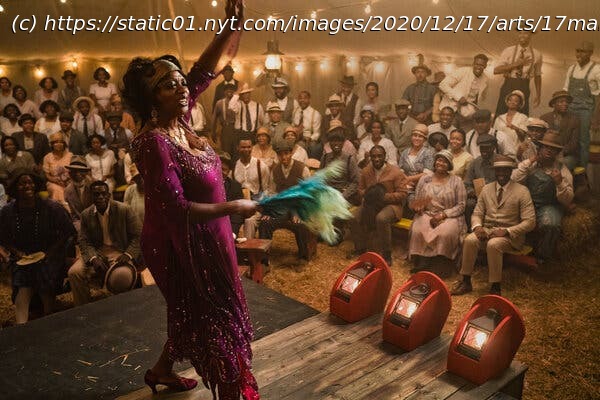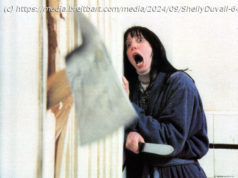Viola Davis and Chadwick Boseman star in a potent adaptation of August Wilson’s play.
“White folks don’t understand about the blues,” says the pioneering singer Ma Rainey, as imagined by August Wilson and incarnated by Viola Davis. “They hear it come out, but they don’t know how it got there. They don’t understand that that’s life’s way of talking.” Albert Murray, the great 20th-century philosopher of the blues, put the matter more abstractly. The art of the music’s practitioners, he wrote, involves “confronting, acknowledging and contending with the infernal absurdities and ever-impending frustrations inherent in the nature of all existence by playing with the possibilities that are also there.” “Ma Rainey’s Black Bottom,” Wilson’s 1984 play about a recording session in Chicago in the 1920s, both dramatizes and expresses that duality. Absurdities and frustrations abound, and the lethal, soul-crushing shadow of American racism falls across the musicians and their instruments. The specific and manifold evils of Southern Jim Crow repression and Northern economic exploitation are unavoidable. The members of Ma’s band swap stories of lynching, assault and humiliation, and Ma fights with the white owner of the record label (Jonny Coyne). By the end of the play — a swift hour and a half in George C. Wolfe’s screen adaptation — one man is dead and another has seen all his prospects evaporate. But the sense of play and possibility, the joy and discipline of art, are also, emphatically, there. There in Ma’s big voice and smoldering, slow-rolling charisma. There in the tight swing of the players behind her — Cutler (Colman Domingo) on trombone; Toledo (Glynn Turman) on piano; Slow Drag (Michael Potts) on bass; and an ambitious upstart named Levee (Chadwick Boseman) on cornet. There in the voices and personalities of the actors: Turman’s gravelly wit; Domingo’s avuncular baritone; Boseman’s quicksilver; Davis’s brass. And there above all in the singular music of Wilson’s language, a vehicle for the delivery of vernacular poetry as durable and adaptable as the blues itself.






